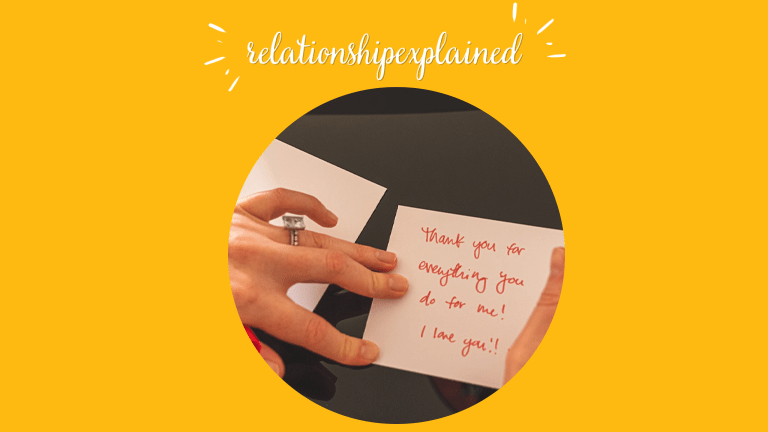Why Won't He Admit He Is Seeing Someone?
A guy may not admit he is seeing someone else due to fear of losing his current partner, guilt, or a desire to maintain both relationships. Solutions include open communication, seeking professional help, setting boundaries, and prioritizing self-care. Confronting the issue calmly and making informed decisions is essential for resolving the situation.
When we find ourselves deeply invested in a romantic relationship, trust becomes the foundation on which we build our connection.
However, there are instances when that trust is tested, leaving us puzzled and questioning our partners' intentions. One common scenario is when a guy is seeing someone else but refuses to admit it to his current partner. This behavior can be perplexing and emotionally distressing for the person involved and may affect their mental health.
There are several reasons why a guy may choose to keep his infidelity a secret: fear of losing his partner, guilt, or a desire to maintain both relationships simultaneously. Understanding these underlying motivations can help individuals navigate their dating life effectively.
And to do so, it is vital to examine the possible reasons behind his silence and communicate openly, which is what this in-depth guide is all about.
10 Reasons Why He Won't Admit He Is Seeing Someone
1. Fear Of Losing His Current Partner
He may fear confessing his infidelity because he knows it could lead to the end of his current relationship. He might deeply care about his partner and their connection, and the thought of losing them may be too difficult to bear. The fear of being alone or facing the consequences of his actions may outweigh his desire, to be honest.
2. Guilt And Shame
Guilt and shame can be powerful emotions preventing most men from admitting infidelity. When someone is involved in an affair, they often experience a significant amount of guilt, recognizing that their actions are morally wrong and hurtful to their partner. This guilt can manifest as a big sign within them, reminding them of the betrayal they are committing.
Moreover, the rise of dating apps and online platforms has made it easier than ever to engage in secretive relationships. The anonymity and accessibility provided by these platforms can intensify guilt and shame. This happens as the person realizes they are actively seeking out, talking, and spending time with potential partners behind their partner's back.
3. Desire To Maintain Both Relationships
He may find satisfaction and fulfillment in both his current relationship and the other person he is seeing and feels the same way for both women. He may not want to give up either connection and believe he can balance both relationships without his partner finding out about the other woman.
This could stem from a fear of missing out or believing he can fulfill different needs with different partners. And maintaining relationships with other women may be another method of keeping his options open while searching for the right person.
4. Avoidance Of Confrontation
Admitting his infidelity would likely lead to confrontations, arguments, and emotional turmoil. He may wish to avoid these difficult conversations and the potential negative emotions that could arise from them. Avoiding confrontation might be driven by a desire to maintain a sense of peace and harmony in his current relationship, even if it means keeping his actions hidden.
5. Fear Of Judgment
He might worry about the judgment from his partner, friends, or society if his infidelity were revealed. The fear of being labeled as unfaithful or facing criticism can be a strong deterrent to admitting the truth for guys. He might fear the loss of respect and support from those around him, which could have significant consequences for his personal and social life.
6. Desire To Protect His Image
Admitting his infidelity could damage the image he has cultivated for himself. Whether it's a reputation as a loyal and committed partner or a perception of being trustworthy, revealing his actions could shatter the façade he has built. If his infidelity becomes public knowledge, he may be concerned about the impact on his professional life, social standing, or personal relationships.
7. Inability To End The Other Relationship
Ending the other relationship might not be as simple as it seems. There could be emotional attachments, shared history, or other factors that make it challenging for him to sever ties. He may be hesitant to admit his infidelity because it would force him to confront the reality that he needs to end the other relationship, which may be too challenging.
8. Emotional Attachment To Both Individuals
It's possible that he genuinely cares for both his partner and the other woman he is seeing. He may have developed deep emotional connections with both individuals, making it difficult to let go of either relationship. The fear of losing the love, companionship, or unique qualities both these women bring into his life could be a strong reason for him to keep his actions hidden.
9. Selfishness And Lack Of Empathy
Some individuals prioritize their own desires and pleasure above the feelings and well-being of others. He may lose interest and may be driven by self-centeredness, seeking to fulfill his own needs and desires without considering the impact on his partner. The lack of empathy and disregard for his partner's emotional well-being could lead him to hide his actions rather than face the consequences of his behavior.
10. Hope For Reconciliation
Despite the affair, he might still hold onto hope that he can end the other relationship and recommit fully to his current partner. He may believe that keeping the infidelity hidden provides an opportunity for him to correct his mistake and salvage the relationship without causing irreparable damage. The hope for reconciliation and the desire to make amends might motivate him to keep his actions a secret, at least temporarily.
How To Deal With The Situation
1. Open And Honest Communication
Open and honest communication is crucial when confronting a partner who won't admit their infidelity. It is important to approach the conversation with the intention of understanding the truth and finding a resolution. Begin by setting aside free time to have an uninterrupted conversation to address the issue.
Express your concerns about the infidelity, being clear and specific about the evidence you have, such as multiple girls or suspicious behavior. Encourage your partner to share their side of the story, allowing them to express themselves openly without interruption.
During the conversation, emphasize that the most important thing in a relationship is honesty and trust. Communicate your desire for a relationship based on mutual respect and loyalty. It is vital to express your feelings, whether it is hurt, disappointment, or a need for clarity. Be calm but firm in communicating the impact of their actions on your emotional well-being.
2. Seek Professional Help
Seeking professional help can be invaluable when dealing with a partner who won't admit their infidelity. Investing time in therapy or counseling can provide clarity and guidance when facing such a complex and emotionally charged situation. It's a clear sign that you are committed to understanding and addressing the challenges within your relationship.
Working with a trained professional allows you to spend dedicated time exploring the dynamics of your relationship and the impact of infidelity. They can help you navigate the range of emotions you may be experiencing and provide insight into the underlying issues that led to the betrayal. Their objective perspective can offer valuable insights and strategies for moving forward.
3. Trust Your Intuition
Trust your instincts if you have strong suspicions or evidence of his infidelity. While it's important not to jump to conclusions, paying attention to your intuition can help you make informed decisions about how to proceed. Consider discussing your concerns with a trusted male or female friend or family member to gain additional perspectives.
When you started dating your partner, you likely had a sense of who they were and what they valued. If you notice clear signs of dishonesty, inconsistency, or suspicious behavior, it's essential to trust those signals. Pay attention to your intuition, as it often picks up on subtle cues and discrepancies your conscious mind may not readily grasp.
4. Gather Evidence
If you need to confront your partner with evidence of his infidelity, gather concrete proof of his relations with other girls to support your claims. This may include text messages on the phone, emails, or other evidence that validates your suspicions. Presenting factual evidence can lead to a more productive conversation and prevent potential denial or defensiveness.
5. Set Boundaries
Clearly communicate your expectations and boundaries within the relationship. Discuss the importance of trust, loyalty, and fidelity, and ensure that both partners are on the same page. Establishing boundaries helps define acceptable behavior and creates a framework for rebuilding trust.
6. Take Time For Self-reflection
Reflect on your romantic feelings, needs, and priorities. Consider whether you are willing to work through the situation or if ending the relationship is the best course of action for your well-being. Understand your own limits and what you require to feel secure and respected in a committed relationship.
7. Consider A Break
Considering a break can be a crucial step when faced with a partner who won't admit their infidelity. When cheating is involved, evaluating the situation and prioritizing your well-being is important. Taking a break lets both individuals step back from the relationship and gain perspective. It's basically a time to reflect on the state of the relationship and address the issues at hand.
During the break, it's essential to have an open and honest conversation where both partners can mention their feelings and concerns without fear of breaking the relationship further. This discussion should focus on understanding each other's perspectives, exploring the reasons behind the infidelity, and determining whether there is a genuine willingness to work on the relationship.
8. Build A Support Network
Reach out to friends, family, or support groups for emotional support. A strong support network can provide guidance, perspective, and a safe space to process emotions. Share your feelings with trusted individuals, such as a mutual friend who can offer advice and help you navigate your challenges.
9. Set Ultimatums, If Necessary
If your partner continues to deny or refuses to end the affair, you may need to set clear boundaries and ultimatums. This could involve making it known that you will leave the relationship if the infidelity persists. While ultimatums should be used cautiously, they can sometimes prompt a serious reflection on the part of your partner and lead to necessary changes.
If he values the relationship, he'll change his ways after getting an ultimatum and may end his relations with the other girl.
10. Prioritize Self-Care
Focus on your own well-being during this challenging time. Engage in activities that bring you joy, practice self-care, and prioritize your emotional and physical health. Seek professional help, engage in therapy or counseling, exercise regularly, maintain a healthy diet, and engage in activities that nurture your mental and emotional well-being.
Taking care of yourself is crucial, regardless of the outcome of the situation. Remember, your own happiness and self-worth should always be a priority. For this, it is most important to recognize when a relationship is past the point of recovery and it is time to let go and move on.
Conclusion
In conclusion, navigating the complex situation of a partner who won't admit their infidelity requires careful consideration and open communication. Trusting your intuition, setting boundaries, and prioritizing your well-being is crucial.
Seeking professional help can provide guidance and support. Whether you work through the situation or end the relationship, remember that your feelings and needs matter.
Building a support network, practicing self-care, and engaging in self-reflection will empower you to make the best decisions for your emotional health and future happiness. Remember, you deserve honesty, trust, and a relationship that aligns with your values.













